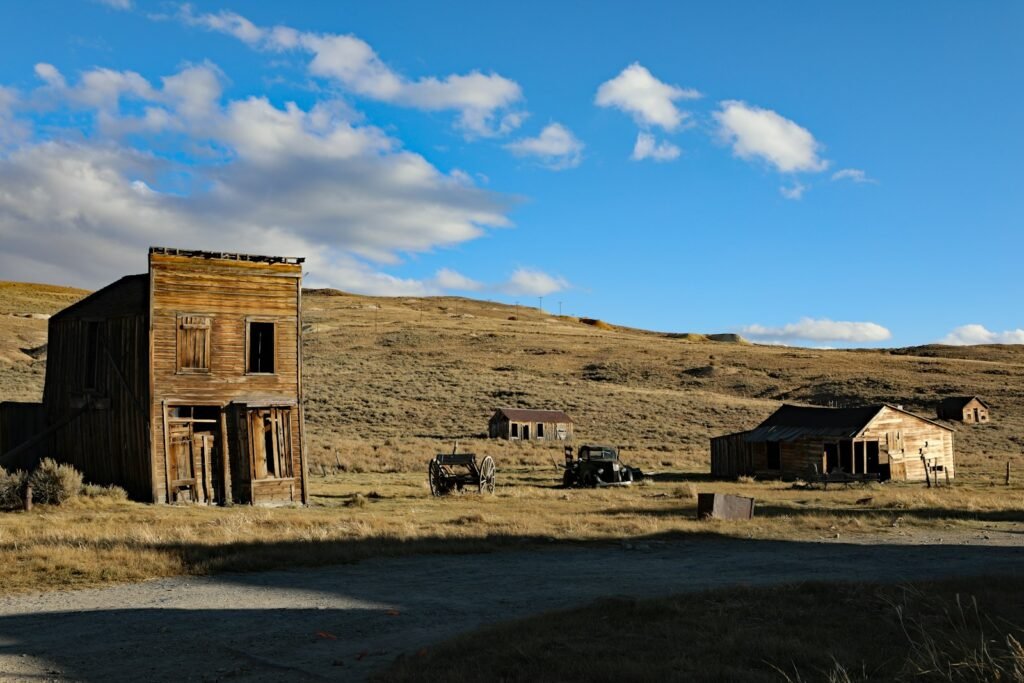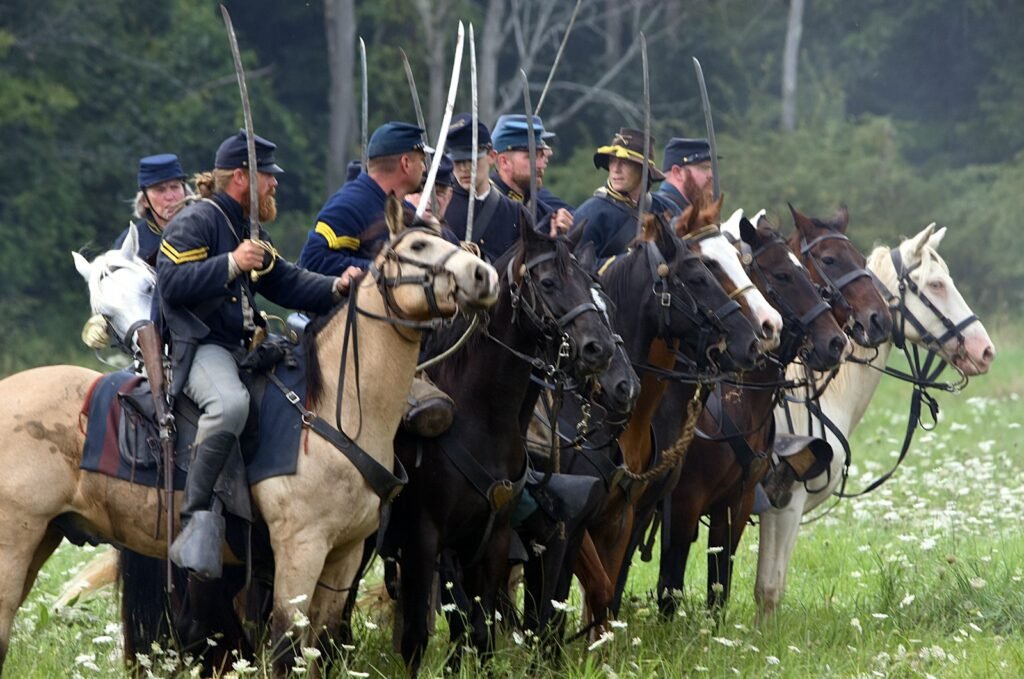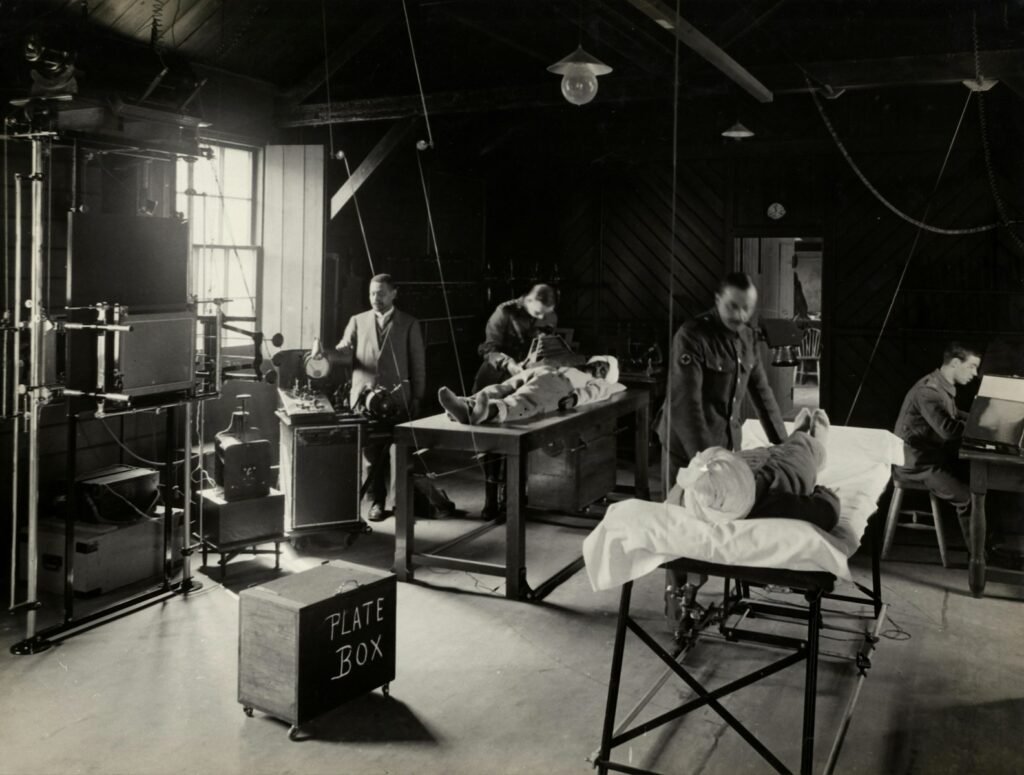
The Spark that Ignited a Frenzy
Gold! The very mention of this precious metal sent a shiver down the spine of early 19th-century Americans, beckoning them with an irresistible allure. It was a symbol of opulence, of boundless possibilities, of a chance to alter one’s destiny in the blink of an eye. When word spread like wildfire about the gold discovery at Sutter’s Mill in California in 1848, it sparked a frenzied stampede on an unprecedented scale. People from all walks of life and every corner of the land abandoned everything they knew to chase after the promise of untold wealth waiting for them amidst the gilded landscapes of the West.
As rumors about gold grew louder and more insistent, a fever gripped the nation. Families were torn asunder as men departed their homes in pursuit of riches, visions dancing through their heads of striking it big and etching their names into history. When James Marshall declared triumphantly, “I have found it!” upon discovering gold at Sutter’s Mill, little did he realize the cataclysmic impact his revelation would have on America’s narrative. That initial spark had ignited a maelstrom, unleashing a cascade of events that would mold the fate of an entire nation.
The Journey Westward
Enthralled by tales of untold riches waiting to be unearthed, adventurers from every corner of the globe turned their gaze towards California’s promise of gold. With a glimmer of optimism in their eyes and determination etched into their souls, these pioneers embarked on a daunting journey westward, braving uncharted territories and unforeseeable challenges along the way.
Thundering over mountains and through desolate deserts, wagons groaned and horses strained as travelers navigated perilous trails in pursuit of their golden aspirations. As twilight descended each night, weary souls huddled around crackling campfires, exchanging stories of past lives and dreams for the future. In the words of frontiersman Daniel Boone, “I may not have been lost, but I certainly found myself bewildered for quite some time.” The path to the West was not meant for the weak-hearted; it beckoned only those willing to embrace uncertainty in their quest for a brighter tomorrow.
Striking it Rich (or Not)
It’s as if fate itself is a capricious game of chance, akin to spinning the wheel of fortune in a luxurious gambling den. Instead of numbers, however, one wagers on spotting a flicker of gold nestled within the rough terrain. The Gold Rush epitomized risk-taking – one either struck it rich and rode off into the horizon with pockets brimming with precious nuggets, or walked away empty-handed with only sunburns and an insatiable craving for wealth.
Picture the surge of excitement when chancing upon a gleaming nugget twinkling amidst the riverbed, much like the iconic prospector John Sutter who famously proclaimed “This is it!” Now envision the despair after tirelessly excavating barren California ground for months, realizing that sometimes riches are meant for others as Mark Twain sagely remarked “There may be gold in them thar hills, but not destined for you.” The Gold Rush was a whirlwind of euphoric highs and crushing lows where aspirations collided with the harsh truths of nature’s wilderness.
Life in the Mining Camps
Life in the mining camps during the Gold Rush was a perplexing mix of hardship and unity. The makeshift tents scattered across the rugged landscapes seemed to burst with activity, as the relentless sound of picks striking rocks reverberated through the valleys, creating a chaotic yet oddly comforting cacophony. As Mark Twain wryly observed, “There is nothing but pick and shovel work here.” Indeed, each miner’s day was filled with backbreaking labor, enduring endless toil under the scorching sun or shivering nights beneath a sky ablaze with stars.
However, amidst this harsh existence, there existed a surprising sense of camaraderie and community. In these rough-and-tumble mining towns, individuals from diverse backgrounds came together with one common purpose to seek their fortune in gold. One unnamed miner captured this sentiment succinctly: “In the mining camps, we were all equals united by our dreams of gold.” Despite facing brutal conditions and fierce competition, there was an undeniable shared sense of purpose that made even the most daunting challenges more bearable. The mining camps became a bursting cauldron of hopes and aspirations where fortunes could change in an instant.
Women in the Gold Rush
In the midst of the frenzied commotion of the Gold Rush, women played a multifaceted role that is often overshadowed by the tales of rugged miners and fortune seekers. Some women ventured westward in pursuit of wealth alongside men, while others found themselves as enterprising individuals in their own right. Consider Sarah Althea Hill, who not only gained recognition for her beauty but also for her legal battle to claim her share of a wealthy man’s fortune. With defiant resolve, she proclaimed, “I am not a mere piece of property to be traded or transferred for profit.”
Yet, life for many women in the mining camps was anything but glamorous. They grappled with challenges ranging from solitude to scarcity of basic necessities. Nonetheless, amidst these adversities, stories of resilience and tenacity emerge. One such remarkable narrative is that of Eleanor Dumont – known as the “Queen of the Northern Mines” – a proficient gambler who dared to defy societal conventions and forge her own path in a male-dominated realm. As she boldly asserted,” I would choose to be an independent saloon lady over being any man’s subservient.” The women during the Gold Rush era might not have always been at center stage, yet their contributions and sacrifices are intricately interwoven into this enthralling chapter in history.
Chinese Immigrants and the Gold Rush
Amidst the chaos of Gold Rush fever that swept across the nation, a group often overlooked but crucial to the quest for riches in the Wild West were Chinese immigrants. In a burst of hope and ambition, they joined the masses of prospectors flocking to California in search of gold. Despite facing perplexing discrimination and enduring hardships beyond measure, these individuals showed remarkable resilience and an unwavering determination to carve out a better future for themselves.
The challenges that greeted Chinese immigrants during the Gold Rush were as bewildering as they were oppressive. From laws like the Foreign Miner’s Tax aimed at restricting their access to wealth, to vicious attacks and exclusion from society, the Chinese community faced a barrage of obstacles on their journey through the turbulent mining camps. Yet amidst this whirlwind of adversity, many Chinese immigrants persisted, defiantly claiming their rightful place in the unfolding drama of this historic era.
The Impact on Indigenous Peoples
The reverberating echs of change following the Gold Rush were not confined to bustling mining towns; they also rippled through the sacred lands of California’s Indigenous peoples. The intrusion of fortune seekers disrupted the once tranquil and hallowed territories of Native Americans, whose way of life was intricately intertwined with the earth. They faced a turbulent upheaval, marked by displacement, loss of ancestral hunting grounds, and erosion of cultural heritage as gold fever swept like wildfire.
Chief Seattle poignantly stated, “This we know: the earth ds not belong to man, man belongs to the earth.” The collision of cultures during the Gold Rush era stands as a stark reminder of the destructive impact that colonialism and greed can have on indigenous communities. It is a poignant chapter in American history that illuminates the resilience and hardships experienced by Indigenous peoples in their struggle against progress and expansion. Their narrative embodies survival, adaptation, and an enduring bond with the land that continues to shape our nation’s identity.
The Legacy of the Gold Rush
The enigmatic legacy of the Gold Rush lies hidden, like a mysterious treasure chest buried deep in the archives of American history, waiting to be uncovered and delved into. Though the sparkle of gold has long since vanished from California’s hills, its impact radiates brightly throughout our nation’s tapestry. As Mark Twain wryly remarked, “It is simpler to find gold in your own backyard than to venture miles away in search of it.” The Gold Rush not only reshaped the Western landscape but also redefined the hopes and ambitions of individuals from diverse backgrounds.
The frenzy surrounding the quest for gold may have been tumultuous and disorderly, yet its enduring legacy embodies resilience, tenacity, and an unwavering pursuit of the American Dream. While boomtowns that materialized overnight eventually crumbled into ghost towns, they continue to exude a sense of adventure and opportunity. Historian Walter Nugent aptly described it as a crucible that molded the contemporary American ethos with promises of boundless wealth and excitement at striking it rich. The echs of the Gold Rush serve as a poignant reminder that true treasures are often not unearthed from beneath the soil but discovered within ourselves along life’s journey.


